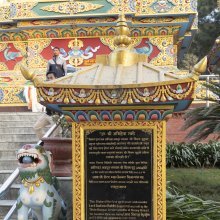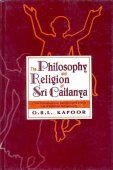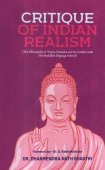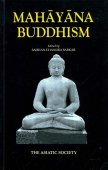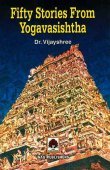Philosophy: 4 definitions
Introduction:
Philosophy means something in Hinduism, Sanskrit. If you want to know the exact meaning, history, etymology or English translation of this term then check out the descriptions on this page. Add your comment or reference to a book if you want to contribute to this summary article.
Images (photo gallery)
In Hinduism
Purana and Itihasa (epic history)
Source: Shodhganga: Elements of Art and Architecture in the Trtiyakhanda of the VisnudharmottarapuranaPhilosophy refers to one of the topics dealt with in the Puranic literature: a category of ancient Sanskrit texts which gives a huge contribution in the development of Indian literature.—The Puranas comprises a wide range of subject matters such as Astrology, Astronomy, Medicine, Cosmology, Theology, Philosophy, Literature, Grammar, Art, Architecture, Iconography, etc. All these subject matters are generally depicted through stories and narratives in lucid style in the Puranas. The simplicity of the stories and legends of Puranas always helps the reader get the ideas of different aspects of literature very easily.

The Purana (पुराण, purāṇas) refers to Sanskrit literature preserving ancient India’s vast cultural history, including historical legends, religious ceremonies, various arts and sciences. The eighteen mahapuranas total over 400,000 shlokas (metrical couplets) and date to at least several centuries BCE.
Yoga (school of philosophy)
Source: ORA: Amanaska (king of all yogas): A Critical Edition and Annotated Translation by Jason BirchPhilosophy is denoted by the Sanskrit term Siddhānta, according to the Yogayājñavalkya 2.8-10ab.—Accordingly, while discussing the study of the Upaniṣads and the Purāṇas: “[In the case of Brahmins,] the wise say that the study of philosophy (siddhānta), [which is the sixth Niyama in this yoga system,] is the study of the Upaniṣads. Like Brahmins, they prescribe the study of [the same] philosophy (siddhānta) for Kṣatriyas. And †...† for good Vaiśyas, possessed of virtuous conduct, as well as [those] Śūdras, women and ascetics who maintain their religious duties, the wise say that the study of philosophy (siddhānta) is the study of the Purāṇas”.

Yoga is originally considered a branch of Hindu philosophy (astika), but both ancient and modern Yoga combine the physical, mental and spiritual. Yoga teaches various physical techniques also known as āsanas (postures), used for various purposes (eg., meditation, contemplation, relaxation).
Pancaratra (worship of Nārāyaṇa)
Source: Shodhganga: Kasyapa Samhita—Text on Visha Chikitsa (p)Philosophy is denoted by the Sanskrit term Tattva and represents one of the principal topics of the Pāñcarātra division of the Vaiṣṇava Āgamas.—The almighty Hari, out of compassion for mankind in general, felt that the Vedas and Śāstras could not be easily grasped and practised by people belonging the diverse communities and cadres, whose potential and comprehension would vary vastly. Hence, he promulgated the Pāñcarātra doctrine [teaching for example tattva—philosophy] which is the essence of the Vedas, in a simplified form.

Pancaratra (पाञ्चरात्र, pāñcarātra) represents a tradition of Hinduism where Narayana is revered and worshipped. Closeley related to Vaishnavism, the Pancaratra literature includes various Agamas and tantras incorporating many Vaishnava philosophies.
Shaiva philosophy
Source: archive.org: Chittanubodha Shastram By Bhaskara KanthaThe Philosophy of Kashmir Shaivism represents a climax in the tradition of Indian thought. One of the special features of Kashmir Saiva philosophy is that it does not despise other systems of thought and paths to liberation. It rather recognizes that cach has its own truth and its place in the spiritual development of humankind, though some systems may be placed lower in the hierarchy of spiritual paths. The Kashmir Shaiva thinkers believe in pluralism because not all human beings are alike and the different paths and Philosophies are meant for different kinds of people.
-
See also (Relevant definitions)
Ends with: Buddhist Philosophy.
Full-text (+3138): Vaisheshika, Samkhya, Anvikshiki, Kanada, Kapila, Lokayata, Vedanta, Nyaya, Brahmasutra, Patanjali, Mimamsa, Darshana, Svakshapada, Samiksha, Lingasharira, Naiyaya, Akshapada, Tarkikatva, Vedanti, Naiyayika.
Relevant text
Search found 326 books and stories containing Philosophy; (plurals include: Philosophies). You can also click to the full overview containing English textual excerpts. Below are direct links for the most relevant articles:
Jainism and Patanjali Yoga (Comparative Study) (by Deepak bagadia)
Part 10 - Eastern Philosophy versus Western Philosophy < [Chapter 1 - Introduction]
Part 11 - Conclusion < [Chapter 1 - Introduction]
Part 8.3 - Introduction to Samkhya Philosophy < [Chapter 1 - Introduction]
Chaitanya Bhagavata (by Bhumipati Dāsa)
Verse 1.16.292 < [Chapter 16 - The Glories of Śrī Haridāsa Ṭhākura]
Verse 2.10.139 < [Chapter 10 - Conclusion of the Lord’s Mahā-prakāśa Pastimes]
Verse 2.20.34 < [Chapter 20 - The Glories of Murāri Gupta]
Samkhya thoughts in the Mahabharata (by Shini M.V.)
Sāṃkhya Definition and Meaning < [Chapter 2 - The Principles of Sāṃkhya Philosophy]
Three Guṇas (principals of Prakṛti) < [Chapter 2 - The Principles of Sāṃkhya Philosophy]
Dhyana in the Buddhist Literature (by Truong Thi Thuy La)
1.1: Introducing the Problem < [Chapter 1 - Introduction]
3.2 (c): The Dhyāna in the Avataṃsaka-sūtra (Hua-Yen) < [Chapter 3 - The Dhyāna in Mahāyāna Literature]
3.4 (a): Bodhidharma and Hui K’o (3rd–4th century CE) < [Chapter 3 - The Dhyāna in Mahāyāna Literature]
Philosophies of Suffering and Healing < [October – December, 1982]
Satchidananda Murty < [April – June, 1986]
The Fourteenth Indian Philosophical Congress < [Jan - Feb 1939]
Lord Jhulelal: An Analytical Study (by Thakkar Harish Gopalji)
Part 4 - Philosophy of Jhulelal < [Chapter 4 - Analysis]
Part 23 - Sufism and Sindh < [Chapter 4 - Analysis]
Part 26 - Miracles < [Chapter 2 - Literature Review]
Related products
(+26 more products available)

